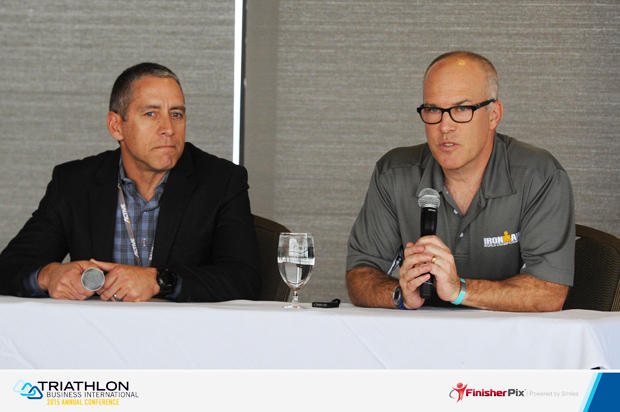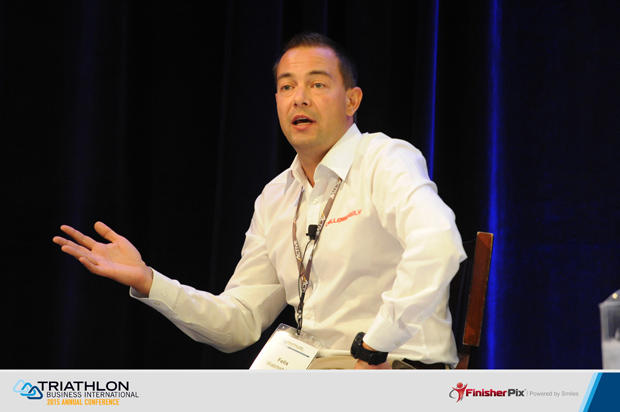RD Takeaways at TBI ’15
What USA Triathlon has done very well over the past few years: Olympic development, coaching certification, a strong insurance policy for sanctioning RDs. What Triathlon Business Intl (TBI) has done somewhat well (better each year): Telling the truth about where we are as an industry, and presenting ideas that move us forward. But it isn't a competition. It's a division of labor.
That's the way I see it. If you haven't heard TBI's voice in the conversation realize it doesn't talk to the end-user (except this week, when I'm writing a series that lets end-users into what happened at an industry conference). TBI's job is to make life better for the end-user through making life better, or at least tolerable, or at least possible, for the guy or gal who's producing goods or services to triathletes.
I think the division of labor was clear in the TBI Conference just ended. What follows is a smattering – pieces, uncomprehensive – of what race directors heard when they were at this year's TBI Conference…
Kelly Burns Gallagher came to the TBI Conference and scared the living Jeebus out of all the RDs attending. Rightly so. It's her job. She's a wage and hour attorney representing defendants (the companies, RDs for example). On behalf of TBI I asked her to come and present on the threat of a volunteer lawsuit. There have been some actual or potential high-profile unpaid labor cases in the news, including those pointed at SXSW and Competitor Group.
The exposure is not just for suits from interns but from volunteers. The exposure is both federal and state. In Ms. Burns Gallagher's opinion these kinds of lawsuits tend to spread like forest fires: They run through an industry until they burn themselves out. It's the beginning of the fire season in mass participation sports. Lawyers have been known to look for plaintiffs in cases like these – wage and hour ambulance chasers. Hence TBI's interest in this exposure at this time.
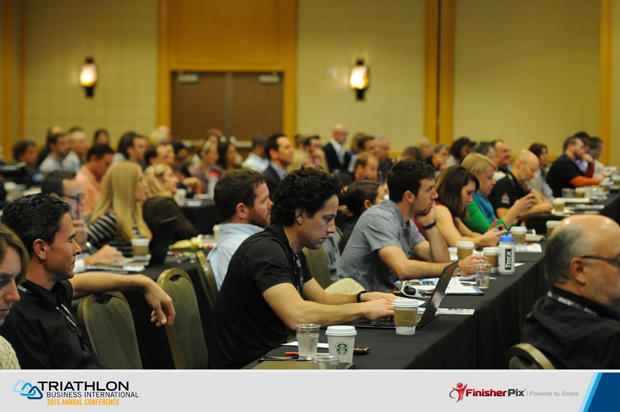
Ms. Burns Gallagher laid out a list of best practices for RDs. The most obvious inoculation is for the race to pay minimum wage to its volunteers. Next best: Convert to a non-profit. It's pretty easy to flip your corporation to a 501c3, less so to flip it back the other way. But there was help from Ms. Burns Gallagher for RDs who run their businesses for profit.
One RD I know has a novel set-up: His races are all non-profits, but these entities own nothing other than their IP (the race's name). He has two more entities, both for-profit: a leasing company and a management company. The races transact with these other companies for goods and services. The race as a non-profit enjoys two benefits: It's much, much easier to sidestep an unpaid labor lawsuit from a volunteer if the entity soliciting the volunteer help is a non-profit; and it's often easier and cheaper for the race to gain access to a course or venue, or for cheaper city services, if it's a non-profit.
The downsides: If your race turns into a megahit you have to earn your money as a service provider, rather than by selling the race. And, you have more disclosure requirements as a non-profit.
The set up this RD has, is it just too cute for any judge to accept? Or is it a tidy way to have your cake but still eat most of it? I asked Ms. Burns Gallagher: "It's one of the best arrangements I've seen. There are some potential issues with joint employer liability but its significantly better than being a stand alone for profit."
If an RD wants to continue to not pay volunteers – they wouldn't be volunteers if you paid them – Ms. Burns Gallagher offered a pair of checklists outlining best practices both for non-profits and for-profit event directors, to lessen or inoculate yourself against such exposures. I'll bet if you're an RD that didn't attend the conference you're wondering if you missed an opportunity!
— Scheduling Conferences —
I interviewed Challenge Family's Felix Walchshöfer (pictured below) at the Conference and asked him about independent RDs who're starting to feel put upon – maybe even endangered – by the weekly releases from both Ironman and Challenge announcing new races. Is the hobbyist, or one-off, RD an endangered species? Mr. Walchshöfer talked about a kind of regional scheduling conference, for lack of a better term, that occurs for race directors proximate to his big race in Roth. The RDs treat each other, and their races, as strategic partners and assets. "Do this race to get ready for Roth," would be the admonition by Challenge Roth to its registrants. That kind of thing. He said he'd be interested in talking to RDs local to his races in the Americas as well.
I asked Ironman's CEO, Andrew Messick, the same question and he answered it the same way. Yes, he'd be open to discussions with RDs proximate to each of his Ironman races.
But we haven't had those meetings yet. When I go to the Boulder Peak Triathlon registration page I see under "great warmup events" the Shawnigan Lake Triathlon. An Ironman-owned race. 1,495 miles away. There are races more convenient for Ironman's customers who'll participate in Boulder Peak (soon to become a Life Time race), and I think Ironman agrees.
The question is how to execute this. I don't blame Ironman. Obviously it's easy for Ironman to program its site to search the closest race of the appropriate distance in a time window that works for Boulder Peak. It doesn't have a calendar of every race, only of its own races. In this case, within the constraints of the filters, Shawnigan Lake is the closest event. It's a big ask to expect Ironman to do any better without a big, nationwide reach-out to RDs and then which among all the races do you choose as "great warmup events?"
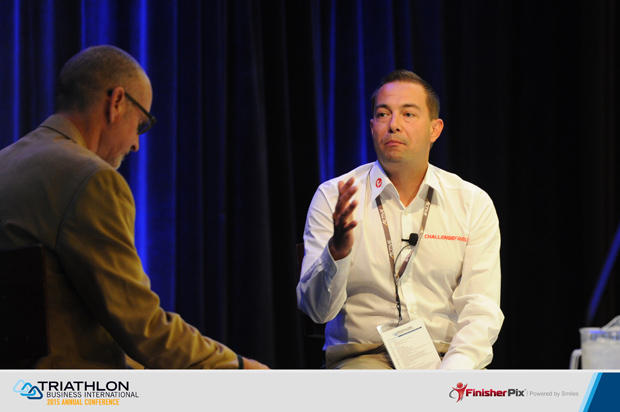
But we don't need to remain idle either. How do you get all the RDs in an area to co-promote? And to help each other in other ways? How do you put them all in a room, assuming you can legally put them in a room (as cycling does, or has done), and start to talk about how the entire regional ecosystem gets or stays healthy?
Who sets these up? Is this a USAT initiative? Or a USAT Region initiative? A TBI initiative? A Slowtwitch initiative? Or a bad idea altogether? I don't know. Just, I think we finally all agree we're in a flat or declining market in North America, at least among adult triathletes, and we need to quickly patch the leaks in the boat, and over the longer term build a sturdier, larger boat.
What I hope is something in between what we now do in triathlon in America (nothing) and what USA Cycling has done in years past, where regional scheduling conferences result in fixed dates where only one race on a particular day in an area receives a sanction. The middle ground is a conference where we can discuss how to optimize opportunities for everyone, sportwide. Which leads me to…
— A Stakeholder Ground Game —
Karen Sing (below right), is the execution arm of Slowtwitch's stakeholder ground game. Yes, Slowtwitch has a ground game and you've probably seen it whether or not you recognize it as such. Karen's the driver of the church bus who picks everybody up and takes them to the polls on voting day. She's in charge of turnout.
She and I presented on what we think is the way much of our sport ought to operate in the future. It is, in a small and incomplete way, that regional meeting spoken of above. Except it's not just race directors. It's every business or non-profit stakeholder we know of in a region, including RDs.
If you're a manufacturer launching a product in retail stores across the country; or a tri club wanting greater integration into the machinery of sport as expressed in your region; or a retail store wanting your holiday sale or pro athlete appearance to be well-attended; or a coach who wants to be kept abreast of opportunities for his or her athletes; or a race director who wants a robust sign-up when registration opens; our ground game (in theory at least – it's what we endeavor to do) enervates the power not just of all race directors in a region but of all industry stakeholders in the region.
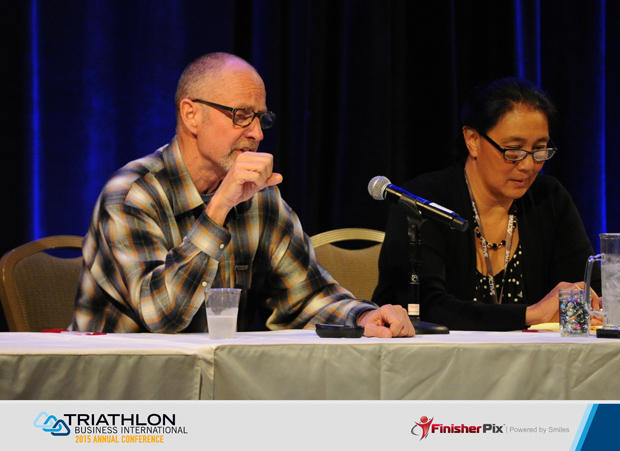
We (here on Slowtwitch) collect run specialty stores, multisport races, bike shops, coaches, bike fitters, tri clubs into our various databases on Slowtwitch, as Slowtwitchers know. It would be nice to report to you all that it's a labor of love, just for the benefit of our readers and every business entity in our dbases. We've got a venal side. We pursue relationships with all these business stakeholders and one aim is leveraging these relationships to the benefit of all (including us).
Remember our Saddle Tour? Our Goggle Tour? These were stakeholder-sourced and energized events. The Saddle Tour: An end-user tries out 6 saddles in 30 minutes, eventually choosing the right one because of tooling, inventory and expertise available at a local shop. This, versus buying saddles mail order one at a time, finding the one he likes best after a 6-month search, a lot of saddles going back and forth, and only UPS made any money when it's all over. Nice idea in theory. But these efforts won't work for any stakeholders unless all (or most) stakeholders pitch in.
We are not the only entity doing this. Ironman launched its tri club program in 2012. It's out there busily making certain each tri club focuses on its race(s) in that region, rather than your race if you're an RD not putting on an Ironman. Ironman rightly understands that even it can't ultimately succeed unless it can mobilize regional stakeholders.
— Know your neighbor —
Geography-based endurance sport ecosystems probably work best when they all know and talk to each other, and help each other. It was my active attempt as a part of the Conference organizing committee to make this a central theme of the Conference and I think that came across. This attempt was made easier by the unexpected help I got from other Conference speakers who brought that same message (e.g., the local RD meet-ups in Bavaria).
If you're making a living (or trying and failing to make a living) in this sport my thesis was: If you each participate in your neighbors' barn-raisings when it comes time to raise your own barn your task will be a lot easier.


